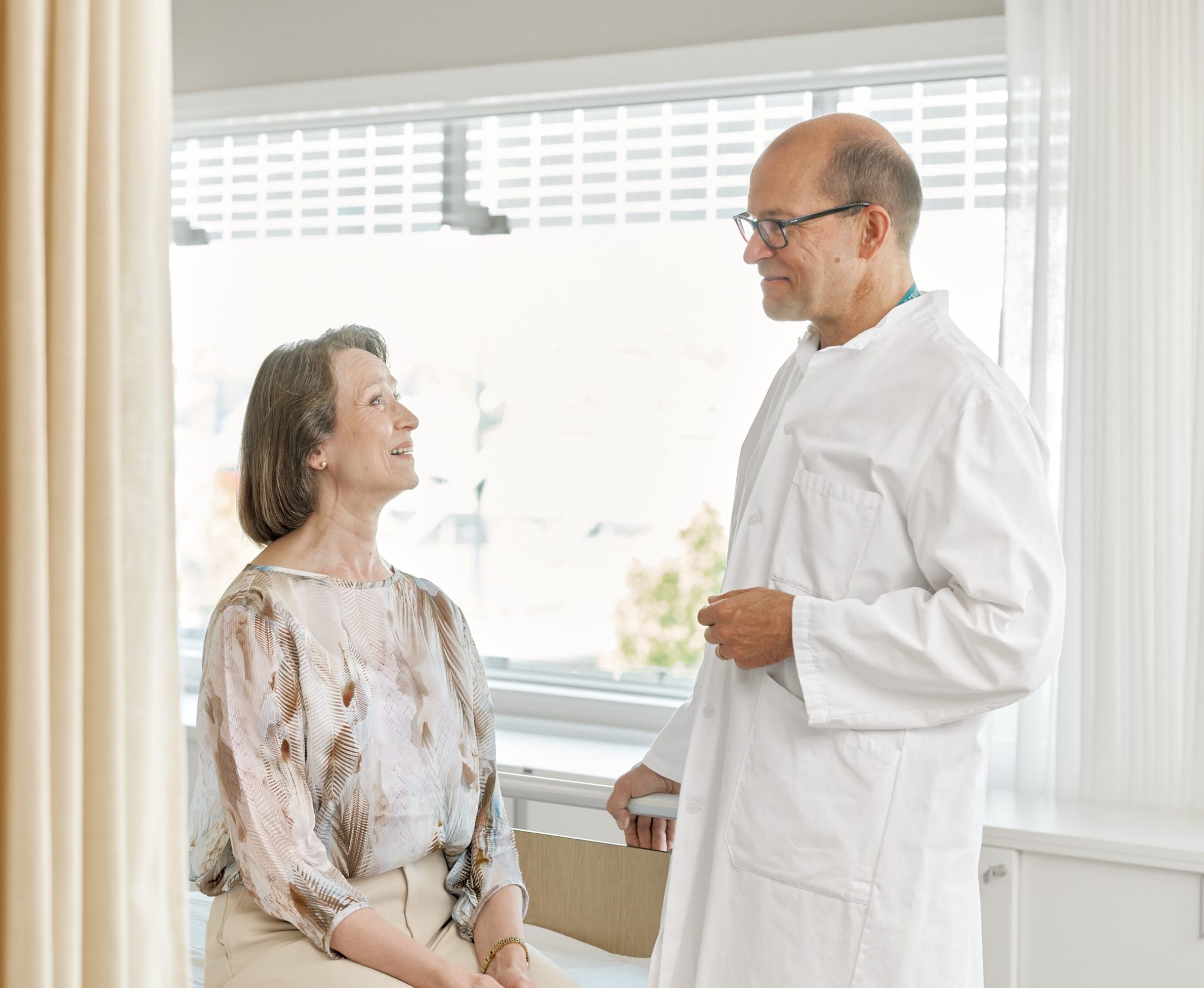Breast reconstruction surgery means meticulous craftsmanship by experienced surgeons
Reconstructing a removed breast is part of the treatment path of many breast cancer patients. The goal of the surgery...
Read moreMon–Thu 8–18, Fri 8–16

Symptoms of prostate cancer vary. To examine prostate problems, Docrates Cancer Center utilises cutting-edge equipment and above all, an experienced cancer treatment team. You can get an appointment with an experienced Docrates prostate cancer specialist quickly and without a referral.
Early-stage prostate cancer can often cause only few symptoms or none at all. In fact, these symptoms may be similar to those caused by an enlarged prostate gland – also called benign prostatic hyperplasia. Moreover, it is possible that prostate cancer and prostatic hyperplasia occur at the same time.
The prostate has reached its normal size by puberty, but it may begin to grow again after midlife. The reasons for enlarged prostate are not fully known, but it is obviously caused by hormonal changes. As many as 80 percent of men older than age 60 are estimated to suffer from enlarged prostate, which means that the problem is quite common in ageing men.
Typical symptoms for both prostate cancer and prostatic hyperplasia can include urinary incontinence or urinary retention. Such problems can include for example the following:
At worst, benign prostatic hyperplasia can lead to urinary retention, which is the inability to urinate, even though the bladder is full.
Prostate pain typically refers to the infection of the prostate gland. Pain can occur in the genital area, e.g. in the perineum, testicles or groin region. In addition to the pain in the genital area, typical symptoms include pain in the pelvic area, nonspecific pain in lower abdomen, urination problems as well as stinging when urinating. Even ejaculation or sitting can be painful for some men. In addition, blood can appear in the semen. The infection of the prostate gland can be either non-bacterial or bacterial, the first one being more common. The infection can be acute or chronic, while an acute infection can also progress to a chronic one.
There is always reason to ask a specialist to examine all the above mentioned and other nonspecific prostate symptoms, as only more accurate examinations can help in finding out whether or not such symptoms are associated with prostate cancer.
In order to detect asymptomatic prostate cancer, patients should undergo PSA screening, Proclarix or Stockholm3 (STHLM3) tests on a regular basis. Screening increases the chances of finding the cancer in its early stage, when it can be more certainly cured.
Docrates Cancer Center provides cutting-edge equipment to examine prostate problems, and first and foremost, an experienced treatment team. In case you have symptoms of prostate problems or you suspect prostate cancer, do not hesitate to contact our phone service: +358 10 773 2010.
Whether you suspect you may have prostate cancer or have just been diagnosed, please don’t hesitate to contact us. Our international team will gladly help you to arrange everything you might need for your visit to Docrates Cancer Center and will be happy to answer all your questions and provide you with the needed information.
Reconstructing a removed breast is part of the treatment path of many breast cancer patients. The goal of the surgery...
Read more
New forms of treatment based on molecular diagnostics enable more and more patients to completely recover from cancer, and make...

With a transaction signed on 2 September 2024, Mehiläinen has acquired Docrates Ltd, as a result of which Docrates Cancer...

On 27, August 2024, the Finnish Competition and Consumer Authority (FCCA) approved the merger of Mehiläinen and Docrates Cancer Center....
Contact us!
Mon-Thu 8:00-18:00, Fri 8:00-16:00
